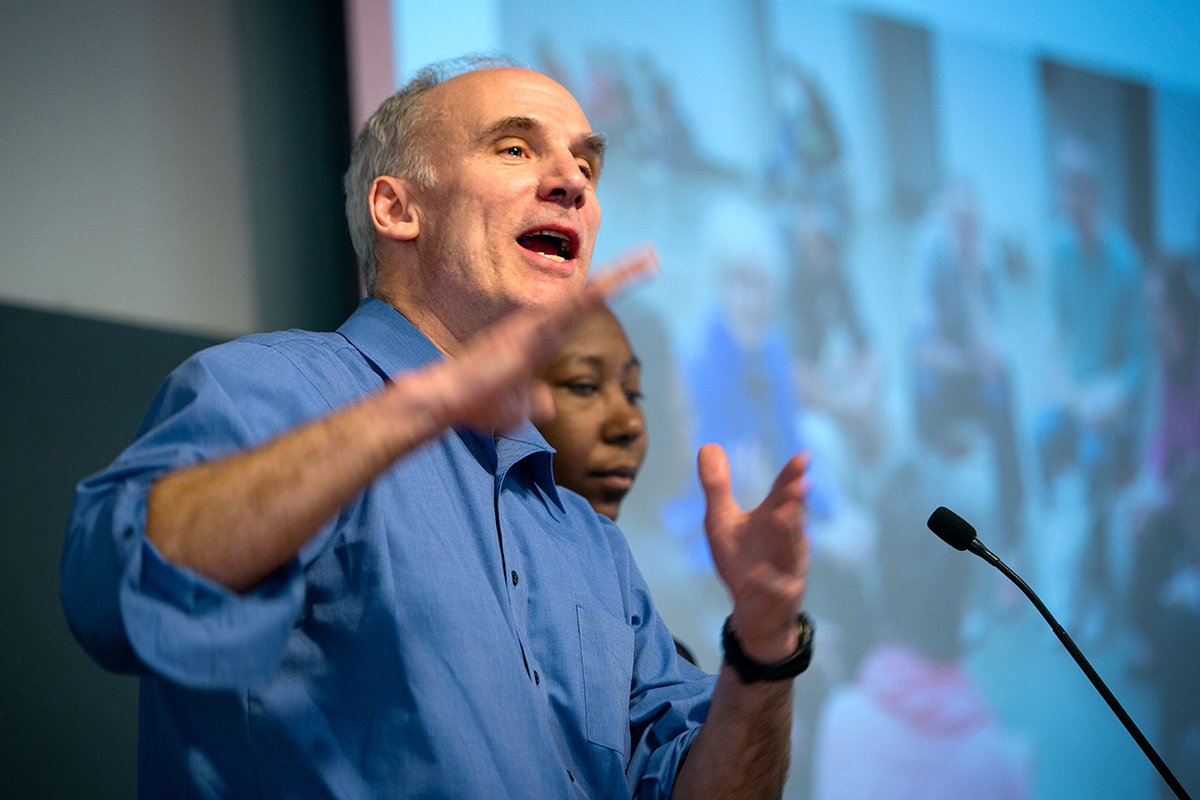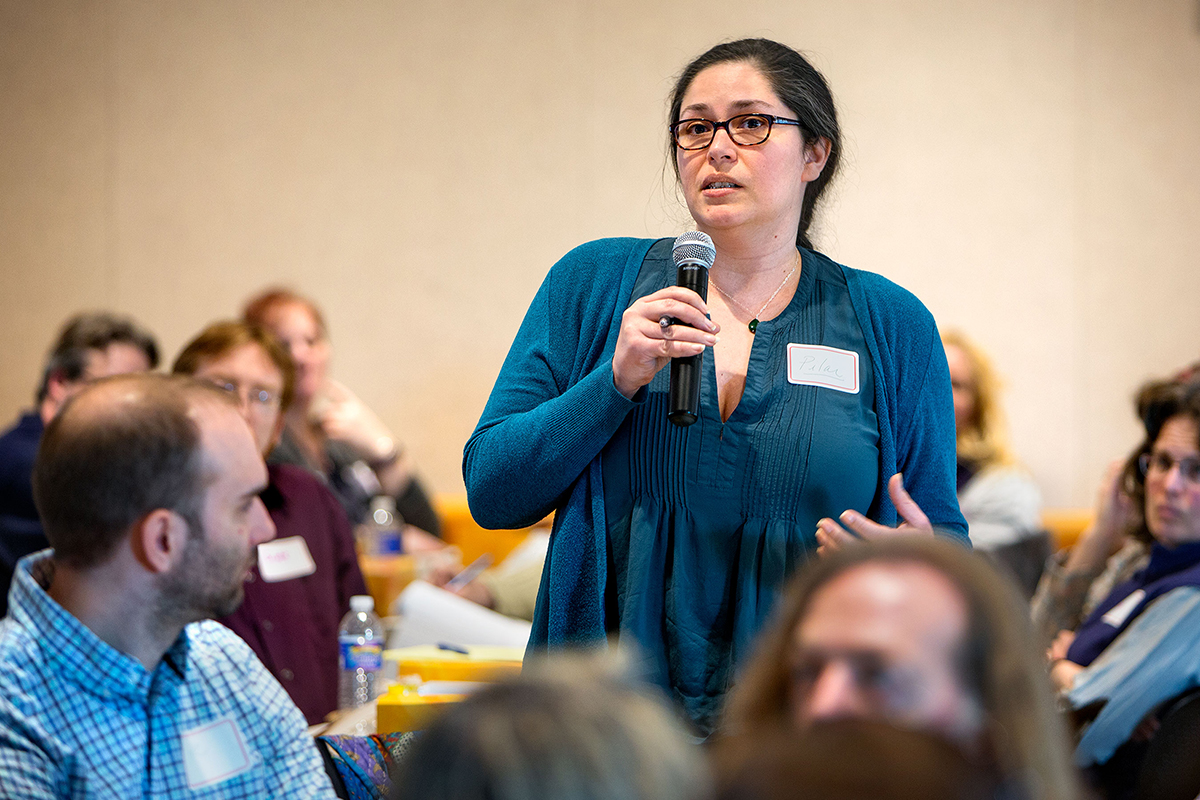Staff voice interest and concern at immigration forum
By Nancy Doolittle

Less than 1 percent of Cornell’s nonacademic staff are citizens of another country. Yet, many of these staff members work directly with the university’s nearly 5,000 international students and 1,000 international researchers and professors.
To learn more about Cornell’s international population, about 140 staff members gathered Feb. 28 in the Biotechnology Building for a forum on immigrants, refugees, green card holders and citizens, while another 32 participated online through Zoom. The staff community forum was organized by the Department of Inclusion and Workforce Diversity and the International Students and Scholars Office (ISSO).
Angela Winfield, director of inclusion and workforce diversity, said the forum was held not to debate politics, but to explore how issues of immigration affect staff –and what Cornell staff can do to promote a culture of respect in the workplace around these issues.
ISSO Director Brendan O’Brien explained the differences between being a citizen of the United States, an immigrant or a refugee seeking asylum in the U.S. He also explained that the green card an immigrant is issued is based on that person’s reason for coming to the U.S. – whether to study or do research, to work, or for family or other reasons. The type of green card issued determines the length of time an immigrant can stay in the country, whether they can work (and pay taxes), and other rights and restrictions. O’Brien also summarized the economic, educational and social benefits that immigrants and refugees bring to the United States.
Small-group discussions then explored how forum participants feel about immigrants and refugees, how the conflict over immigration has surfaced in participants’ interactions with others in their communities, and what participants can do as individuals, or collectively as Cornell staff members, to promote understanding and caring for all in the Cornell community.
Reporting out to the larger group in attendance, participants in the discussions noted that they have been affected by the anxiety, fear and sadness that immigrants have expressed to them – especially those students who have come to their offices with their fears and those for whom English is a second language. They were also acutely aware of “how much we don’t know” about the lives of immigrants in the U.S. today, even those who live or work near us.
“We don’t think about how much it costs to apply for a green card or citizenship, or the time away from work it takes to go on interviews or fill out and submit the needed documentation,” said one participant.

“We need to remember we have colleagues in the workforce who are affected by these rulings. They bring a human perspective to this complicated process,” said another.
“We also need support for the spouses at home with their children, alone all day with their fears for the future,” said a third.
Winfield noted that all members of the Cornell community can do “little things” to make people feel welcomed and at ease. “Just as there are micro-aggressions, so there can be micro-affirmations,” she said.
Ulysses Smith, the lead diversity and inclusion strategist for the Department of Inclusion and Workforce Diversity, gave four suggestions for providing an affirming environment:
• Choose empathy: listen and understand; see the world through other perspectives.
• Educate yourself: know your biases, privileges, blind spots; take workshops.
• Educate others: share what you have learned with colleagues, friends and family members.
• Get engaged: connect with and value others.
To learn more, Smith invited all to a panel discussion, “Immigration Chaos: DACA Students and Higher Education Grapple With Upheaval,” to be held March 17, noon to 1 p.m. in Kennedy Hall’s Call Auditorium and live-streamed on CornellCast, sponsored by the University Relations Diversity Council. The Global Cornell web pages on Executive Actions also provide information for immigrants to the United States and Deferred Action for Childhood Arrivals (DACA) students.
Media Contact
Get Cornell news delivered right to your inbox.
Subscribe